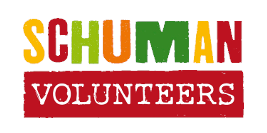Holidays are here for most of us so the tasks for me as a volunteer at the Foundation also changed, but since for most of the time I spent in Warsaw as part of E.S.C. family I conducted workshops for students all around Poland about my home country and about Climate change, after these nine months I gained some experience and I’d love to share with you some tips and thoughts about it in this post.
Tips first, thoughts after
First of all I think it’s important to make clear for you as a future facilitator of the workshop(s) what is an workshop? What is the purpose of it? Who is going to be the audience? And where is this going to take place? Just by answering to all these questions beforehand will help you structure it and delivering it properly.
In my case, I knew from the beginning that I’ll lead my workshops for polish students from secondary school (VII- VIII grade) and from high school (IX-XII grade) and as in general here in Poland one class lasts 45 mins the rule was applicable for my workshop as well. So, he size of the group and the space were the only unknown aspects all the time. And all of these details helped me organize myself.
Therefore, I decided to structure my workshop about Romania in a way that my audience feels involved too. By using non-formal methods of education I decided to start with introducing myself and explaining how I arrived to live one year in Poland, than an so called ice-breaker activity was a quick and simple question as what place to visit in your region, city, town would you recommend? The purpose of such questions is to break the silence and the barrier that you might encounter/perceive between you and them and it will also make them feel comfortable interacting with you. After that I usually continue my presentation by giving them general information about the topic and important to mention here is to use short and clear sentences so they can follow you. Kind of in the middle of the workshop there should be another activity so called energizer- which in my case was a language game and through this I wanted to keep them involved in the topic and show them that language is not an obstacle in meeting and knowing new cultures and most of the time it worked in the sense that they were surprised by the similarities they discovered. And last, but not least for closing the workshop I decided to put all the general information and some myths about my home country in an interactive quiz which they can play by themselves or divided in teams and it gives them points and some kind of reward at the end. The last 5 mins were always dedicated to feedback and here it really depends on you and on the group you lead the workshop for in which way you ask for it. I would personally highly recommend to ask for your audience’s opinion so that you can adapt and improve your workshop and your skills.

I followed almost the same structure for the workshop about climate change with the remark that since it took place online I tried o prepare more information than what could fit in 45 mins and I asked a lot of questions so that I can create a dialogue..
When it comes to my personal recommendations, I’ll list them down and I hope you’ll find them useful.
- Make sure that you like what you are doing and don’t be afraid to show it. Children will be much more attracted to what you propose to them if they see your passion into it and it will also help you staying motivated. Be natural, nobody expects perfection.
- While talking make sure you express yourself clear and you adapt your language to your target group. Leading a workshop in a foreign language is not always easy, neither for you nor for your listeners because of the language barrier, but if you prepare yourself with more than what could fit in 45 mins and you’re ready to adapt, it might be easier and funnier than you think.
- Always, but always prepare a back up action. Be it for your workshop or for your travel, make sure you have a plan B. It will be really useful and you will save a lot of resources!
- Be open and adaptable. It might happen that you’ll be asked an unexpected questions or that something odd or great but also unexpected happened, whatever it is keep your positive vibes as much as you can and do your best it will be more than enough.
Keep in mind that volunteering is also a leaning process so while you’re here you can learn from anyone and from any kind of situation, take this advantage.
